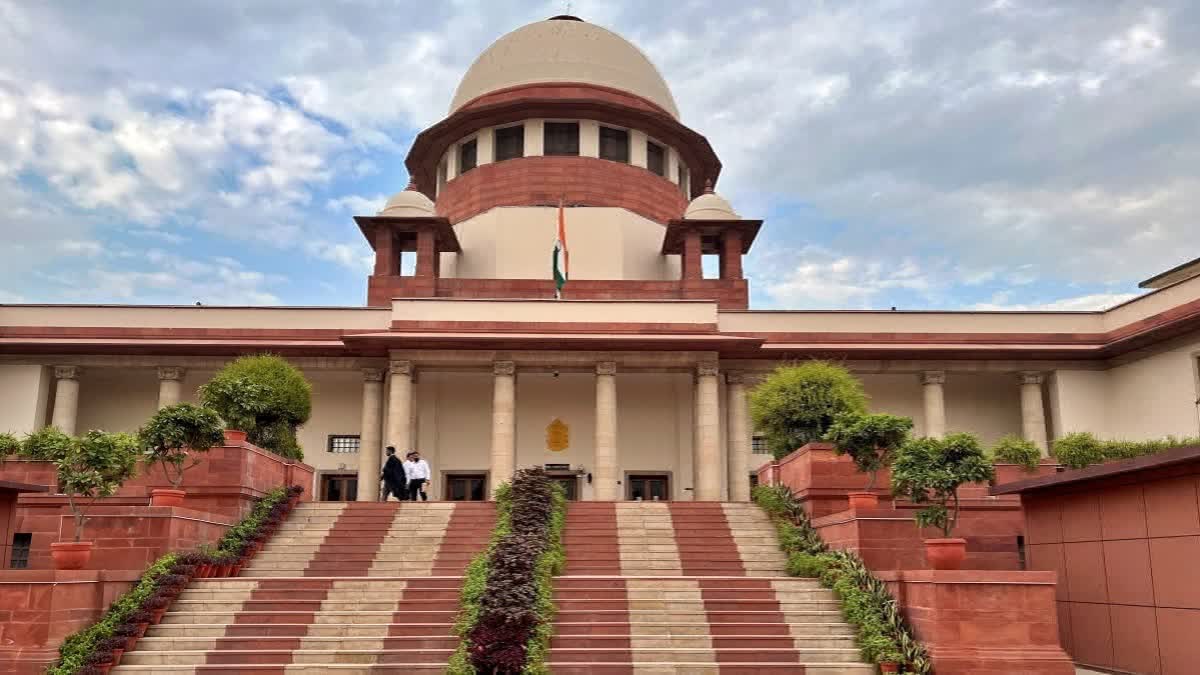New Delhi: The Supreme Court has held that non-appearance in response to a proclamation is a stand-alone offence, and it can continue even if the proclamation under Section 82 CrPC is extinguished.
A bench of justices, CT Ravikumar and Sanjay Karol examined the legal questions, which included whether the proclaimed offender status, under the provisions of the Cr.P.C., of an accused can subsist if such accused stands acquitted during the trial in connection to the very same offence.
The bench also examined whether the subsistence of the proclamation under Section 82 of Cr.P.C. is necessary for the authorities to proceed against an accused against whom such a proclamation stands issued under Section 174A of the erstwhile IPC.
Section 82 of the erstwhile CrPC deals with a proclamation for a person absconding, and Section 174A of the erstwhile IPC pertains to non-appearance in response to a proclamation under Section 82 of the CrPC.
The bench said what happens if the status under Section 82 Cr.P.C. is nullified, i.e., the person subjected to such proclamation, under subsequent developments, is no longer required to be presented before a court of law. “Then, can the prosecution still proceed against such a person for having not appeared before a court during the time that the process was in effect? The answer is in the affirmative”, it said in a judgement delivered on January 2.
The bench said the language of Section 174A, IPC, says, “Whoever fails to appear at the specified place and the specified time as required by proclamation…” and added, “This implies that the very instance at which a person is directed to appear, and he does not do so, this section comes into play.”.
The bench said what further flows from the language employed is that the instance of non-appearance becomes an infraction of the section, and therefore, the prosecution would be independent of Section 82, Cr.P.C. being in effect.
Justice Karol, who authored the judgement on behalf of the bench, said so, while proceedings under Section 174A IPC cannot be initiated independent of Section 82, Cr.P.C., i.e., can only be started post the issuance of proclamation, they can continue if the said proclamation is no longer in effect.
The bench concluded, “We hold that Section 174A IPC is an independent, substantive offence that can continue even if the proclamation under Section 82, Cr.P.C. is extinguished. It is a stand-alone offence”. The apex court’s judgement came on an appeal challenging a June 2023 judgement of the Punjab and Haryana High Court.
The bench said Section 174A IPC, inserted by the 2005 amendment to the erstwhile IPC, inserts a substantive offence, prescribing punishment of three years or a fine or both when such proclamation is issued under Section 82(1) Cr.P.C. and seven years and a fine if the said proclamation is under Subsection (4) thereof. The bench said the object and purpose of this section is to ensure penal consequences for defiance of a court order requiring a person’s presence.
“Granted that the offence prescribed in Section 174A IPC is indeed stand-alone, given that it arises out of an original offence in connection with which proceedings under Section 82 Cr.P.C. are initiated and in the said offence the accused stands, subsequently, acquitted, it would be permissible in law for the Court seized of the trial under such offence to take note of such a development and treat the same as a ground to draw the proceedings to a close, should such a prayer be made and the circumstances of the case so warrant,” noted the apex court.
Read More



